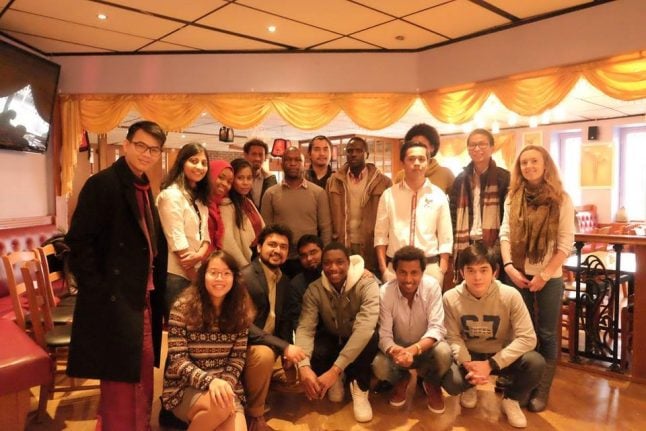As Lemony Snicket said “It is always sad when someone leaves home, unless they are simply going around the corner and will return in a few minutes with ice-cream sandwiches.”
But waving frantically to family, friends, and colleagues from the neighborhood as you are overcome with emotions and excitement about studying abroad on one hand – and dealing with the uncertainty ahead of starting new life on your own on the other hand – makes for a muddled and indecisive state.
There are feelings of insecurity as you may be leaving home for the first time; and the confusion when you think about making new friends.
Either way, “goodbye” is the hardest word when the time to leave home approaches. But, all these feelings are like a birth pang that gets lost in a few days once you start studying at Karolinska Institutet.
Why does studying at KI provide the best experience and a feeling of almost being at home? Well keep reading.
Personal development, academic growth
Firstly, it is a very international and diversified institute where you meet people from different parts of the world. And with people comes diverse perspectives, culture, values and beliefs that widen your cultural awareness and social skills.
For instance in my class alone (Master’s in Health economics, policy and management) there are students from more than 14 countries. I learn a lot and get the sense of home when I simply chill out and talk with friends and classmates as brothers and sisters.
Secondly, it is the best place for personal development as a whole person.
KI is not only a place for your academic growth in your specific course, but it also gives you the opportunities to attend a lot of inspirational lectures (the Nobel lectures for example), career events and seminars, and other social events.
There are numerous opportunities to work in different companies and expand your career prospects. There are also opportunities for thesis collaborations and exchange studies where you can do your master’s thesis.
Potluck dinner
For example, the health and life sciences career fair on March 9th Careers in Health and Science Exposition (organized by CHaSE) is among the workshops we will attend at KI soon.
If you are active person you can also join and work with different organizations and associations where you can build your leadership and communication skills as well.
Thirdly, the hospitable environment is something that makes KI different. It’s clear how convivial the lecturers are when you are welcomed with “fika” for each course. In fact, most programmes offers snacks and coffee/tea when starting new courses.
The other memorable event I had was a potluck dinner organized by the program coordinators where we each brought foods representing our home countries. We were able to eat and mingle together like a family.
It was remarkable!!
There are other similar events like coffee hours where you meet awesome people and build your social skills.
'Every minute is precious'
Finally, there are plenty of places to relax and exercise, free gym access with some classes at the Flemingsberg campus, tennis courts and other health promotion activities.
The 2016 KI loppet, a running event, was among the most impressive events I’ve participated in so far – my friends and I ran as a group and had lots of fun.
Maybe this is how it is for everyone studying at KI, but if you are like me (an SI scholarship holder) you will have another family called NFGL (Network for Future Global Leaders).
As a scholarship holder you are allowed to be a member of the SI NFGL and at KI we have the NFGL Karolinska Local Network where we organize events and mingle.
We’ve organized a welcome event with cultural exchanges and this week organized a health equity seminar. Later in the spring, there will be a public speaking workshop and study visits to follow.
I’m so excited! Around here every minute is precious and our minds are always curious to learn new things each day.
I would like to extend my gratitude for the Swedish institute (SI) for giving us such a golden opportunity to study in Sweden and giving us the financial support to organize events.
Mihretab Abedom
(Chairman of SI NFGL Karolinska local network)


 Please whitelist us to continue reading.
Please whitelist us to continue reading.